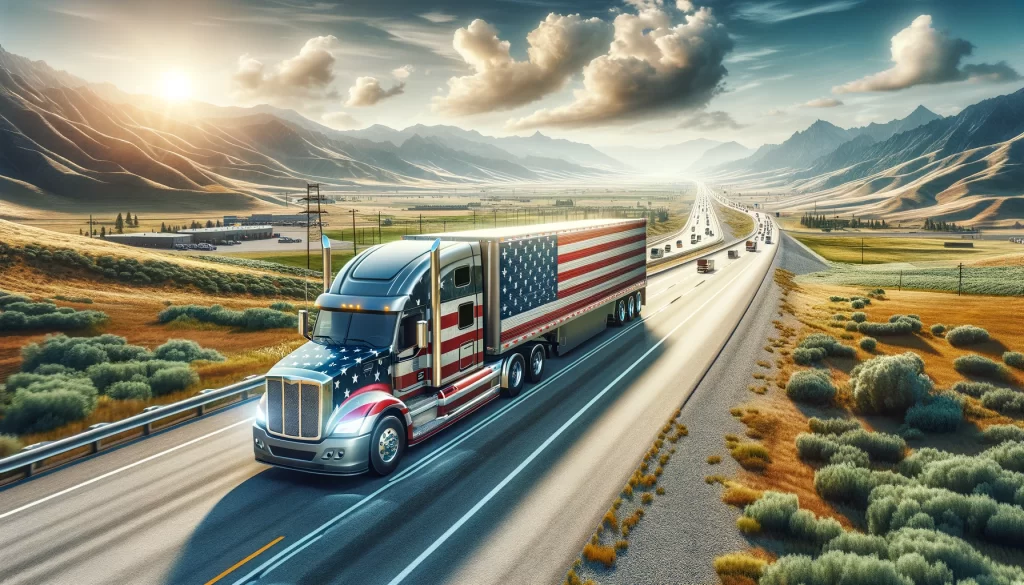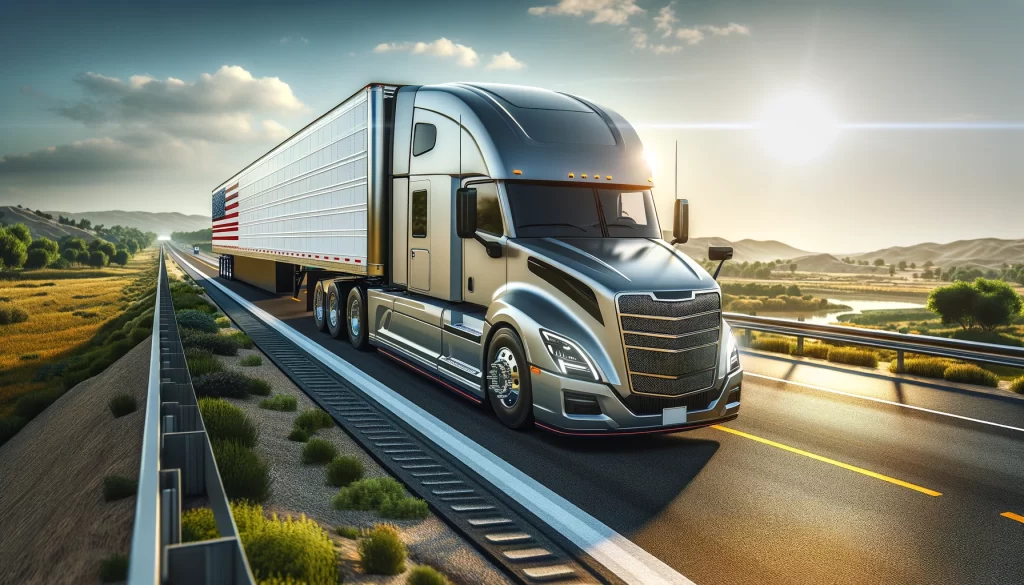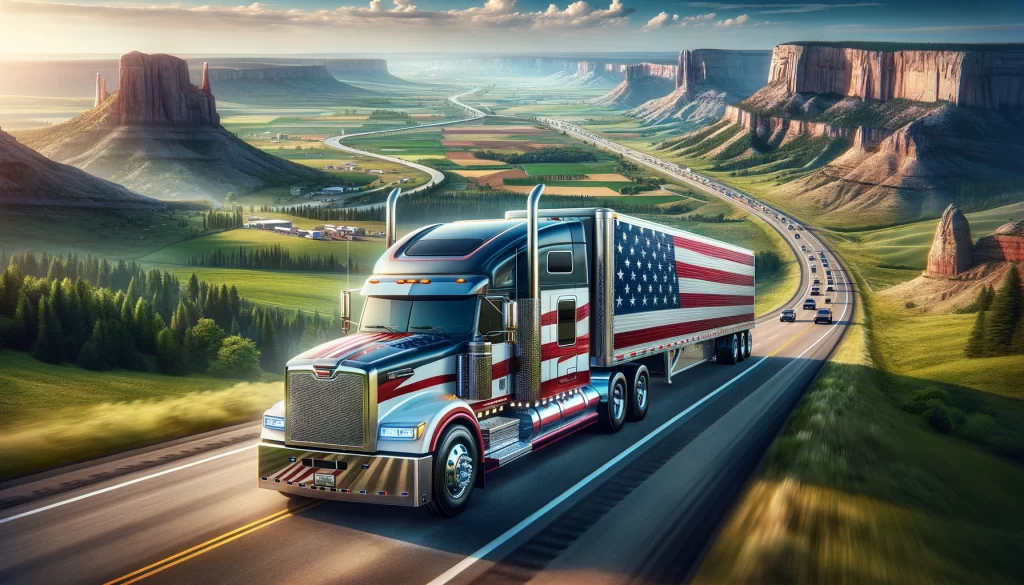Illinois Truck Restricted Routes
Freedom Heavy Haul can offer expedited Pickup and Delivery for any size shipment anywhere in the USA. Contact us today for No Hassle, No Pressure Pricing.
The state of Illinois plays a pivotal role in the United States’ freight transportation network, acting as a critical hub for goods moving across the country. Given its central location and extensive network of highways, railroads, and waterways, understanding the intricacies of trucking regulations, including restricted routes, is crucial for logistics and transportation professionals. This article explores the Illinois Truck Restricted Routes and framework governing Illinois’ trucking routes, the classifications and restrictions pertinent to truckers, and the resources available for navigating these routes efficiently.
Overview of Illinois Freight Transportation
The transportation of goods through Illinois is a cornerstone of the state’s economy and a vital component of the national supply chain. Illinois’ geographical position, bordering the Mississippi River and the Great Lakes, along with its dense network of railroads and highways, establishes it as a significant freight hub in North America.
Significance of Freight in Illinois
Freight transportation in Illinois is not just a local or regional affair but a national imperative. The state’s infrastructure supports a vast amount of the country’s freight movement, providing a link between the eastern and western United States. The volume of goods moved through Illinois underscores the importance of efficient and effective transportation networks.
Role of Illinois in National Freight Movement
Illinois’ role in the national freight network is underscored by its ability to connect multiple modes of transportation. This multimodal connectivity facilitates seamless transitions between rail, road, and water transport, making Illinois a critical node in the country’s logistics network.
Legal Framework and Regulations
Navigating the complex landscape of trucking regulations requires an understanding of the legal framework that governs freight transportation in Illinois. These regulations are designed to protect infrastructure, improve safety, and ensure the efficient movement of goods.
Truck Size and Weight Regulations
Illinois enforces specific regulations regarding the size and weight of trucks operating within its borders. These laws are in place to prevent damage to roads and bridges, reduce accidents, and mitigate congestion on highways. Adhering to these regulations is essential for all freight carriers to avoid penalties and disruptions in their operations.
Classification of Truck Routes
The classification of truck routes in Illinois is a critical factor for logistics planning. These classifications determine where trucks of certain sizes and weights can travel, impacting route selection and delivery times.
Truck Route Classifications in Illinois
Understanding the different classifications of truck routes in Illinois is essential for effective logistics planning. Each class of route has specific regulations regarding the size and weight of trucks allowed, influencing how freight is moved throughout the state.
Expressway System and Class I Routes
Class I routes, primarily comprising the expressway system, are designed to accommodate larger trucks, including those with 53-foot trailers. These routes are crucial for long-haul trucking, providing efficient pathways through and around urban areas.
Major State Highways and Class II Routes
Class II routes include major state highways and selected local roads designated to support heavier and larger trucks. These routes serve as vital links between the expressway system and local destinations, facilitating the distribution of goods to a broader range of areas.

Local Government and Locally Preferred Routes
In addition to state-designated routes, local governments in Illinois have the authority to designate Locally Preferred Truck Routes. These are crucial for the final leg of delivery, ensuring goods reach their ultimate destinations within municipalities.
Navigational Tools for Truckers
For truckers navigating the complex network of roads in Illinois, several tools and resources are available to aid in planning efficient and compliant routes.
Interactive Mapping and “Getting Around Illinois”
The “Getting Around Illinois” website is an invaluable resource for truckers, providing interactive maps that display truck routes, restrictions, and other pertinent transportation data. This tool helps in identifying the most efficient and compliant paths for freight movement across the state.
Obstructions and Illinois Truck Restricted Routes
Awareness of obstructions and restrictions on truck routes is crucial for avoiding delays and penalties. The state provides detailed information on height, weight, and width restrictions, as well as any temporary obstructions due to construction or maintenance activities.
Planning and Development Impacts
The planning and development of freight infrastructure in Illinois take into consideration the impact on local communities and the environment. Efforts are made to balance the needs of the freight industry with those of residents and ecosystems.
Freight Development and Infrastructure Challenges
Developing infrastructure to support the growing demands of the freight industry poses significant challenges. These include mitigating congestion, repairing and upgrading aging infrastructure, and integrating new technologies to improve efficiency and safety.
Quality of Life and Environmental Considerations
The impact of freight transportation on quality of life and the environment is a concern that requires attention in the development and regulation of trucking routes. Efforts to minimize the environmental impact include the implementation of green technologies and the enforcement of emission standards. Additionally, strategies to reduce noise pollution and traffic congestion contribute to improving the quality of life for Illinois residents.
Collaborative Efforts and Solutions
The challenges of freight transportation in Illinois are met with collaborative efforts between state agencies, local governments, and the freight industry. These partnerships aim to develop solutions that enhance the efficiency of freight movement while addressing environmental and community concerns.

Role of CMAP and Regional Planning
The Chicago Metropolitan Agency for Planning (CMAP) plays a significant role in the strategic planning of freight transportation in the region. CMAP’s initiatives focus on improving infrastructure, reducing bottlenecks, and promoting sustainable transportation solutions to support the region’s role as a national freight hub.
Strategies for Reducing Truck Bottlenecks
One of the critical focuses of regional planning efforts is the reduction of truck bottlenecks on key routes. Strategies include infrastructure improvements, traffic management technologies, and the development of alternative routes to distribute traffic more evenly across the network.
Addressing Freight-Related Environmental Justice Issues
Efforts to address environmental justice issues related to freight transportation involve identifying and mitigating the impacts of freight movement on disadvantaged communities. This includes measures to reduce air pollution, noise, and congestion in areas disproportionately affected by freight traffic.
Future Directions and Innovations
Looking forward, Illinois is poised to adapt to the evolving landscape of freight transportation through investments in infrastructure, technology, and policy reforms. These initiatives aim to sustain the state’s critical role in the national freight network while enhancing the sustainability and efficiency of freight movement.
Adapting to Changes in Freight Transportation
The freight industry is undergoing significant changes, with trends towards automation, electrification, and enhanced data analytics. Illinois is investing in research and development to incorporate these innovations into its freight transportation network, ensuring its adaptability to future demands.

Investments in Freight Infrastructure
Investments in freight infrastructure are critical to maintaining and enhancing the capacity and resilience of Illinois’ transportation network. This includes upgrades to roads, bridges, and intermodal facilities to accommodate growing freight volumes and support the efficient movement of goods.
Emerging Technologies in Freight Movement
Emerging technologies, including autonomous vehicles, drone delivery, and blockchain logistics, offer promising prospects for the future of freight in Illinois. The state is exploring the integration of these technologies to improve the reliability, efficiency, and security of freight transportation. In conclusion, Illinois plays a pivotal role in the national freight transportation network, with a comprehensive system of trucking regulations and infrastructure designed to support the efficient and sustainable movement of goods. Through ongoing collaboration, investment, and innovation, the state is well-positioned to continue its leadership in the freight industry, balancing economic benefits with environmental and community wellbeing.







